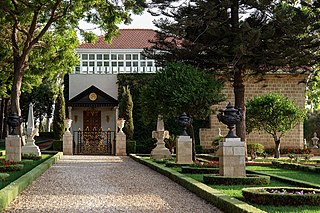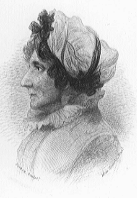A Quote by John Milton
What needs my Shakespeare for his honour'd bones,- The labour of an age in piled stones? Or that his hallow'd relics should be hid Under a star-y-pointing pyramid? Dear son of memory, great heir of fame, What need'st thou such weak witness of thy name?
Related Quotes
A God must have a God for company.
And lo! thou hast the Son-God to thy friend.
Thou honour'st his obedience, he thy law.
Into thy secret life-will he doth see;
Thou fold'st him round in live love perfectly-
One two, without beginning, without end;
In love, life, strength, and truth, perfect without a flaw.
And also to the alien, who is not of Thy people Israel, but comes from a distant land on account of Thy fame; for hearing of Thy great name and Thy strong hand, and Thine outstretched arm, he comes to this house to pray... do Thou listen in the heavens, the place where Thou dwellest, and perform all that the alien begs of Thee, so that all the peoples of the earth may know Thy name, to fear Thee like Thine own people Israel, and to know that Thy name is proclaimed over this house that I have built.
Look what thy soul holds dear, imagine it
To lie that way thou goest, not whence thou com'st.
Suppose the singing birds musicians,
The grass whereon thou tread'st the presence strewed,
The flowers fair ladies, and thy steps no more
Than a delight measure or a dance;
For gnarling sorrow hath less power to bite
The man that mocks at it and sets it light.
Thy husband is thy lord, thy life, thy keeper,
Thy head, thy sovereign; one that cares for thee,
And for thy maintenance commits his body
To painful labour both by sea and land,
To watch the night in storms, the day in cold,
Whilst thou liest warm at home, secure and safe;
And craves no other tribute at thy hands
But love, fair looks and true obedience;
Too little payment for so great a debt.
Milk-livered man,
That bear'st a cheek for blows, a head for wrongs;
Who hast not in thy brows an eye discerning
Thine honor from thy suffering; [that not know'st
Fools do those villains pity who are punished
Ere they have done their mischief. Where's thy drum?
France spreads his banners in our noiseless land,
With plumed helm thy state begins to threat,
Whilst thou, a moral fool, sits still and cries
'Alack, why does he so?']
Is it thy will, thy image should keep open My heavy eyelids to the weary night? Dost thou desire my slumbers should be broken, While shadows like to thee do mock my sight? Is it thy spirit that thou send'st from thee So far from home into my deeds to pry, To find out shames and idle hours in me, The scope and tenor of thy jealousy? O, no! thy love, though much, is not so great: It is my love that keeps mine eye awake: Mine own true love that doth my rest defeat, To play the watchman ever for thy sake: For thee watch I, whilst thou dost wake elsewhere, From me far off, with others all too near.
O Romeo, Romeo, wherefore art thou Romeo? Deny thy father refuse thy name, thou art thyself thou not a montegue, what is montegue? tis nor hand nor foot nor any other part belonging to a man What is in a name? That which we call a rose by any other name would smell as sweet, So Romeo would were he not Romeo called retain such dear perfection to which he owes without that title, Romeo, Doth thy name! And for that name which is no part of thee, take all thyself.
Eternity.?Thy name Or glad, or fearful, we pronounce, as thoughts Wandering in darkness shape thee. Thou strange being, Which art and must be, yet which contradict'st All sense, all reasoning,?thou, who never wast Less than thyself, and who still art thyself Entire, though the deep draught which Time has taken Equals thy present store?No line can reach To thy unfathomed depths. The reasoning sage Who can dissect a sunbeam, count the stars, And measure distant worlds, is here a child, And, humbled, drops his calculating pen.































